I Was an Afghan General. Do Not Abandon My Soldiers Now.
A Cross Post from Project Taliban
(GCV Note: This article was originally published under
’s Project Taliban here.)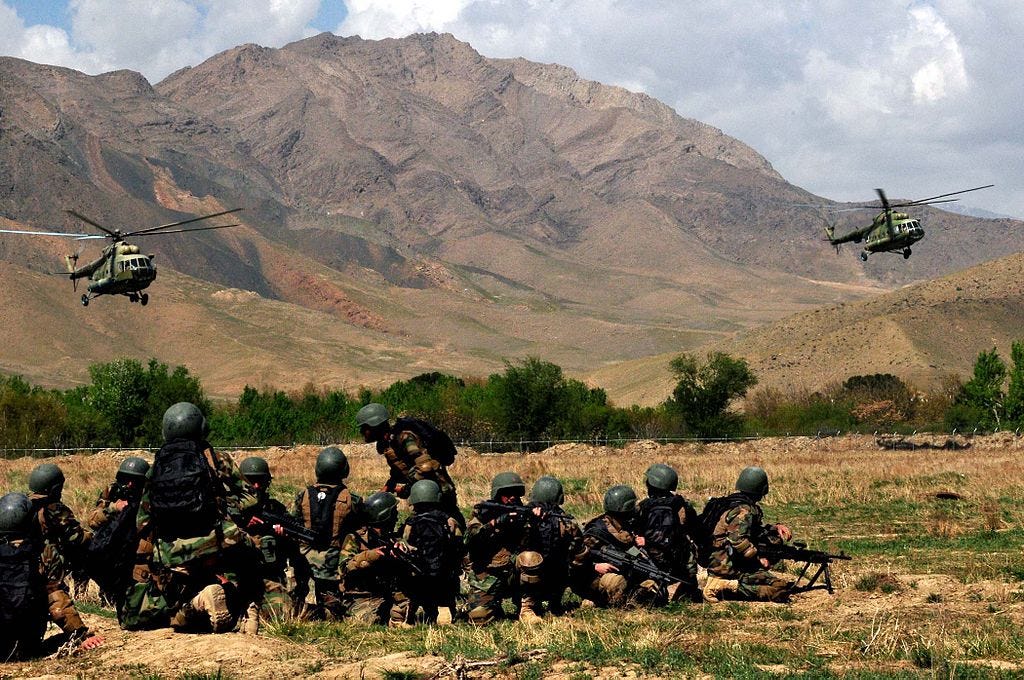
May 22, 2025 — When Kabul fell to the Taliban on August 15, 2021, it marked more than the collapse of a government. It was the disintegration of a sovereign state, a democratic hope, and the lives and dreams of millions of Afghans who stood by their nation and fought to protect it. For me, as a former general in the Afghan National Army, it was the moment we lost not only our country, but the lives we had dedicated ourselves to building for our people.
Today, those of us who once wore the uniform of the Afghan National Defense and Security Forces (ANDSF) are scattered around the world. We are stateless, hunted, and too often forgotten. This message is not about politics or blame. It is about people. It is about the thousands of soldiers, officers, and families who served with honour and now live in fear, without protection, and without purpose.
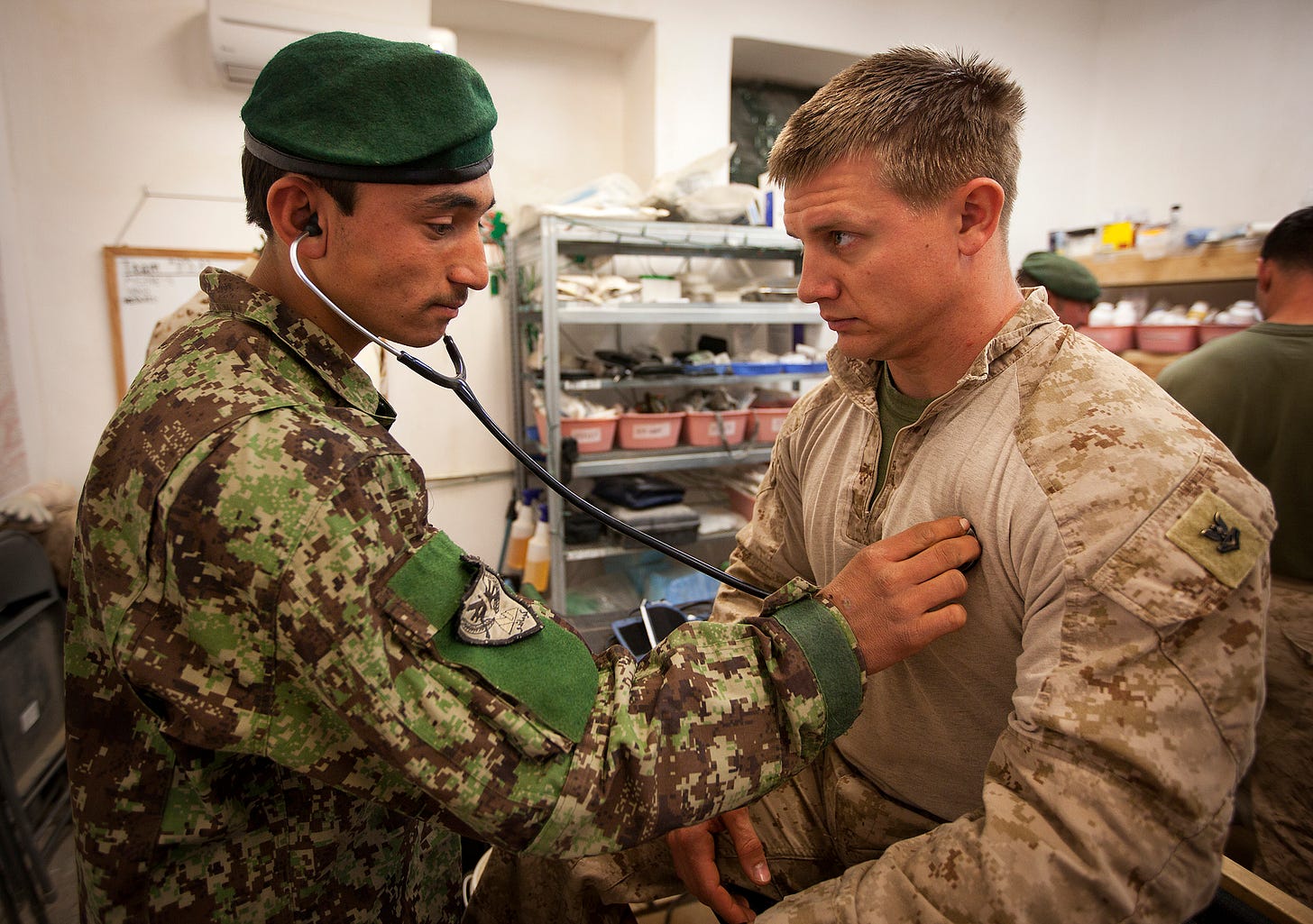
My Soldiers are in Danger
The ANDSF was built with international support but led and staffed by Afghans — by patriots who believed that Afghanistan could be free, stable, and secure. We fought for that dream, and we fought side-by-side with international forces against terrorism for nearly two decades.
Now, many of those same soldiers and officers are being targeted by the Taliban and their affiliates Al-Qaeda, ISIS-K, and others. They are hunted because of what they stood for. Their lives are in danger, their families threatened, and their futures held hostage by the collapse of a promise made to them by both their own government and the international community.
Some of these men and women now live in countries like Iran and Pakistan, countries that welcomed them not as allies, but as tools to be used in proxy wars. When they refused to serve foreign agendas, they were cast aside, deported, or manipulated through fear and psychological pressure. Even I, and my own family, were not spared from these tactics.
While some host nations welcomed them as allies, others have viewed them as geopolitical assets to exploit. Iran, for instance, has attempted to recruit ex-ANDSF personnel for proxy conflicts in the Middle East. Russia has sought to draw them into its war in Ukraine. When recruitment failed, deportations and pressure campaigns followed, fuelled by psychological manipulation and threats to their families.
This precarious situation poses a humanitarian concern as well as a direct national security risk. Stateless, unemployed, and desperate, former ANDSF personnel are now prime targets for radicalisation. The longer the world waits to intervene, the higher the risk that these trained fighters will be co-opted by non-state actors, or, worse, pushed back into Taliban-controlled Afghanistan, which has once again become a haven for terrorism.
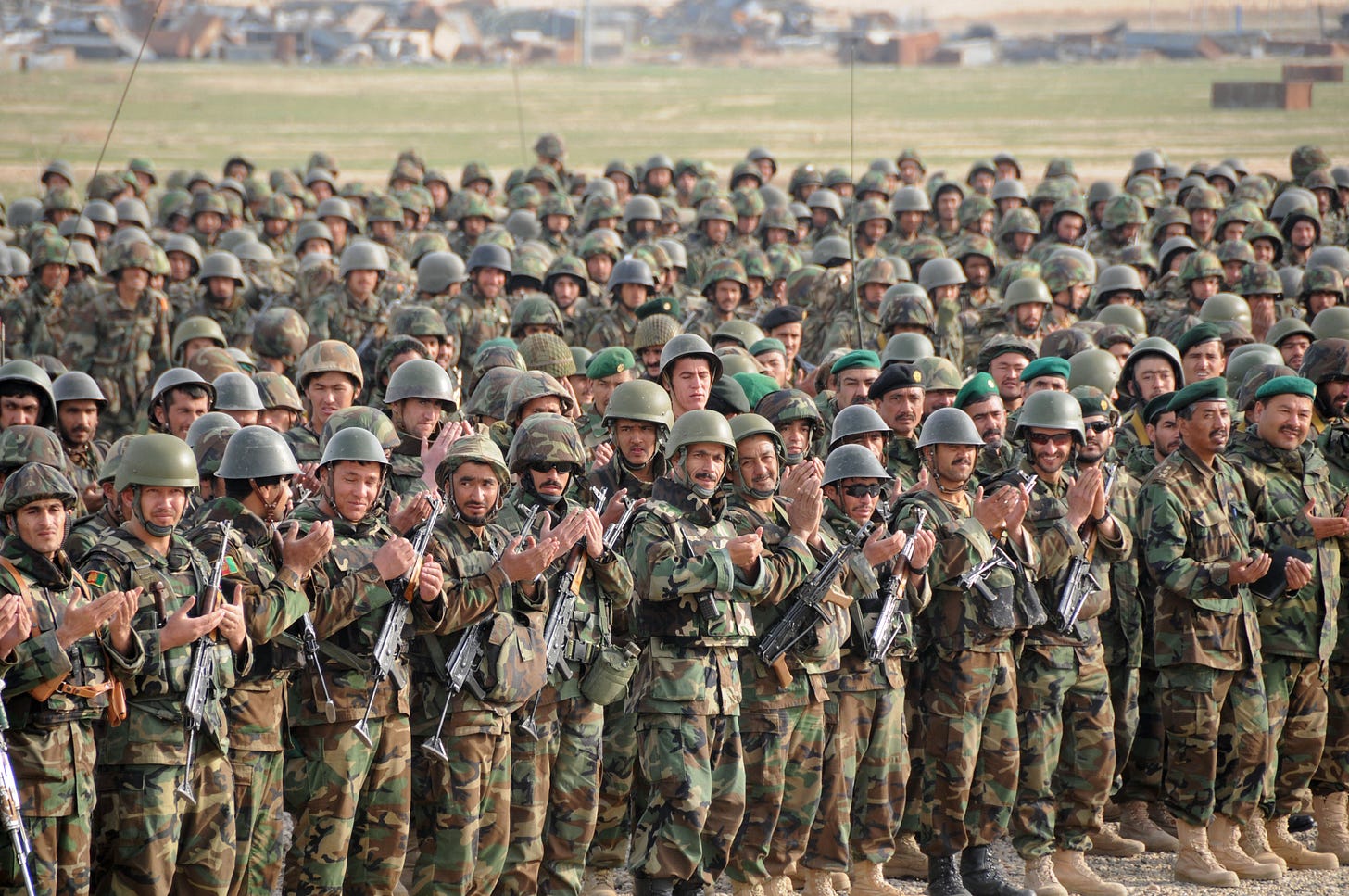
A Dispersed but Loyal Force
As of today, our estimates show that:
• 40,000–50,000 ANDSF members are in Iran
• 10,000–20,000 are in Pakistan
• A few thousand are in Turkey and Europe
• Several hundred each are in Tajikistan, India, Australia, and Canada
• Approximately 16,000 are in the United States
The rest of the troops, counting hundreds of thousands, are still on the ground.
These are not just numbers. These are trained professionals: people who fought for stability, who believed in law and order, and who once held the line against chaos. Now, they are refugees, many living in poverty, fear, and uncertainty. Without meaningful intervention, they risk being coerced by terrorist networks or manipulated by hostile states. This is not speculation. It is already happening.
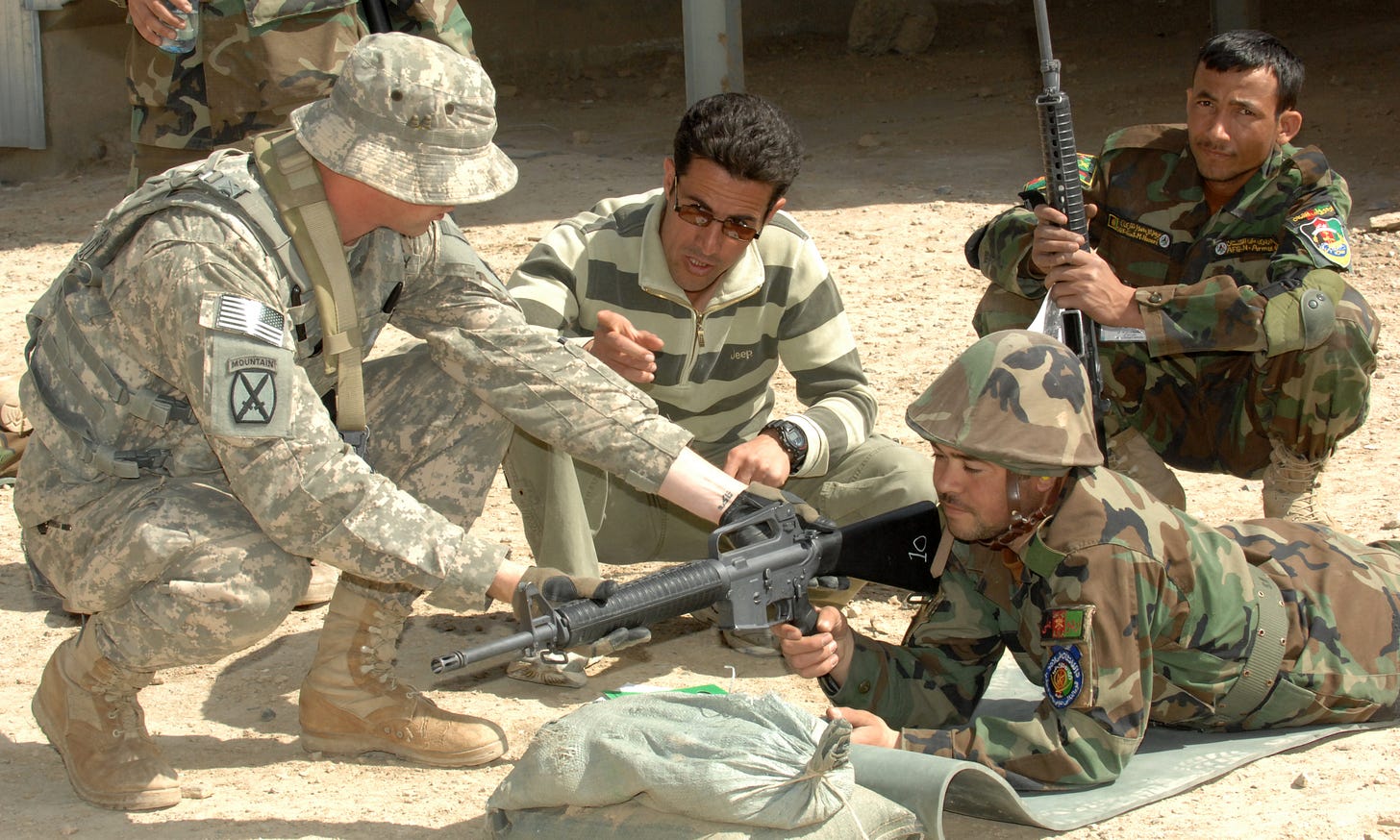
The World Must Not Waste This Opportunity
This is a moment for moral clarity and strategic foresight. If the world truly wishes to prevent the resurgence of global terrorism, then it cannot ignore the fate of those who once stood on its frontlines.
These former soldiers are not a burden, they are an opportunity.
They can still serve, if given the chance. They can contribute to peacekeeping operations, humanitarian efforts, security assistance programs, and national defence structures in host countries. They can train future generations, support global stabilisation missions, and help rebuild trust where it has been broken. They do not want handouts; they want purpose.
By integrating these men and women into meaningful roles, the international community would not only honour its past commitments but protect its own future. Doing so would:
• Prevent radicalisation and exploitation by bad actors
• Strengthen global counterterrorism efforts
• Show the world that loyalty and service are still valued
• Preserve the moral fabric of international alliances
This Is Not Just About Afghanistan. It’s About All of Us
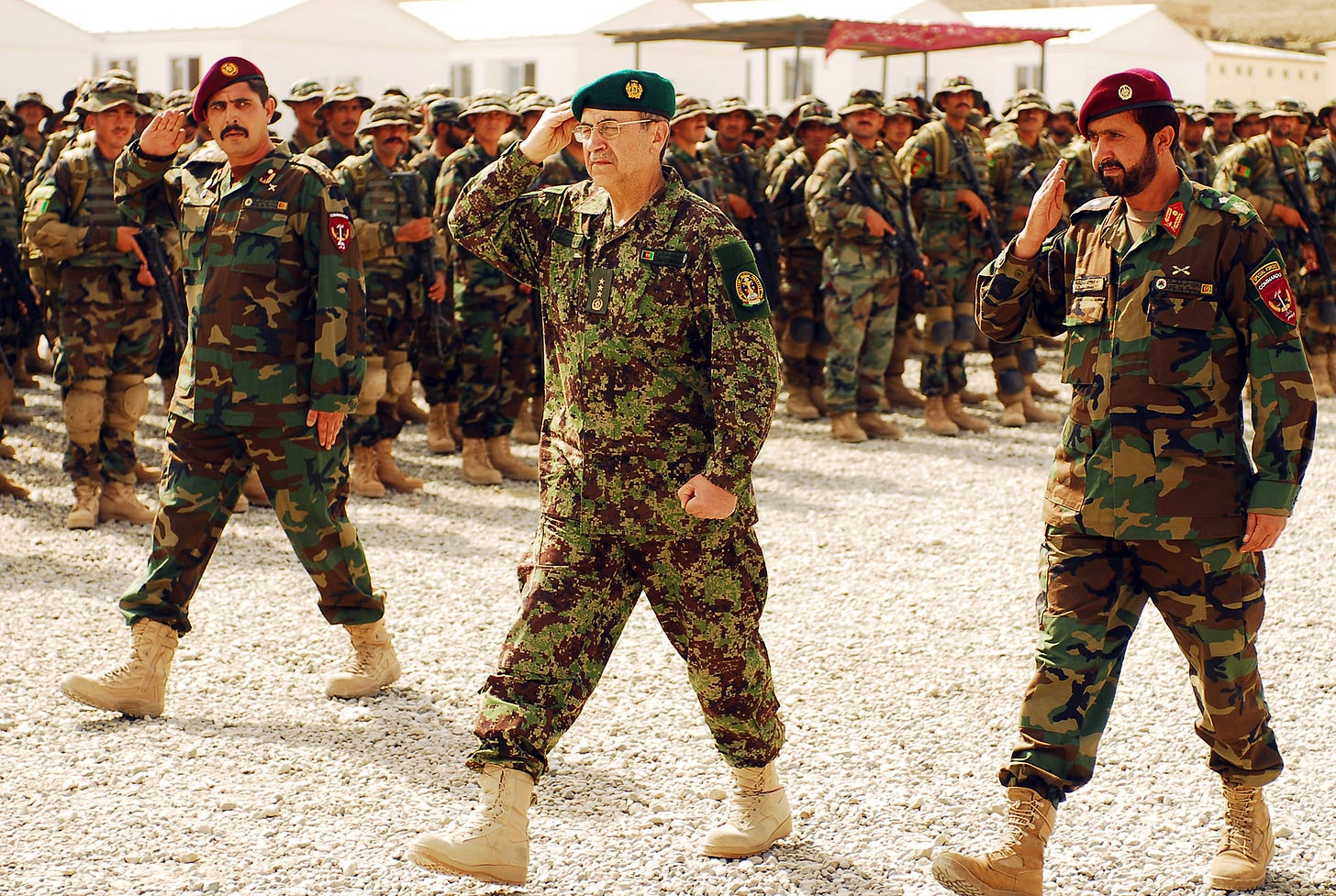
As a general, I gave orders. As a leader, I made promises. And now, I am asking the world not to forget those who kept their word—who fought with honor, and who are now left without a flag, without a uniform, and without a voice.
The cost of inaction will be paid in instability, terrorism, and the erosion of global security. Afghanistan may have fallen, but our duty — to our soldiers, to our allies, and to humanity — remains.
The world must act before it is too late. Not just for our sake, but for the sake of everything we once fought for together.



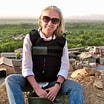
You rightly say 'thie is a moment for moral clarity and strategic forethought'. But tragically today morals seem a very rare virtue among the leaders of the western nations who abandoned the courageous people of Afghanistan and left their erstwhile allies and colleagues to fend for themselves. I first visited your beautiful country in 1971 and recall the orchards of Kabul, where I first saw mangoes. Decades later where the orchards were had been laid waste and were deserts of landmines. First the Soviets then the West brought you destruction.
The tentacles of a master criminal, murderous tyrant spread far and wide. With allies N Korea, Iran, China, and various autocrats, he is exploiting weakness in faulty, messy democracies all over.
You can bet he is happy the wretched Afghans are suffering under Theocratic tyrannies like Iran, Hamas, Hezbollah - they are all the same virus.
We must not let them divide us, have our friends at each other's throats, while he smiles at the chaos he has engineered.